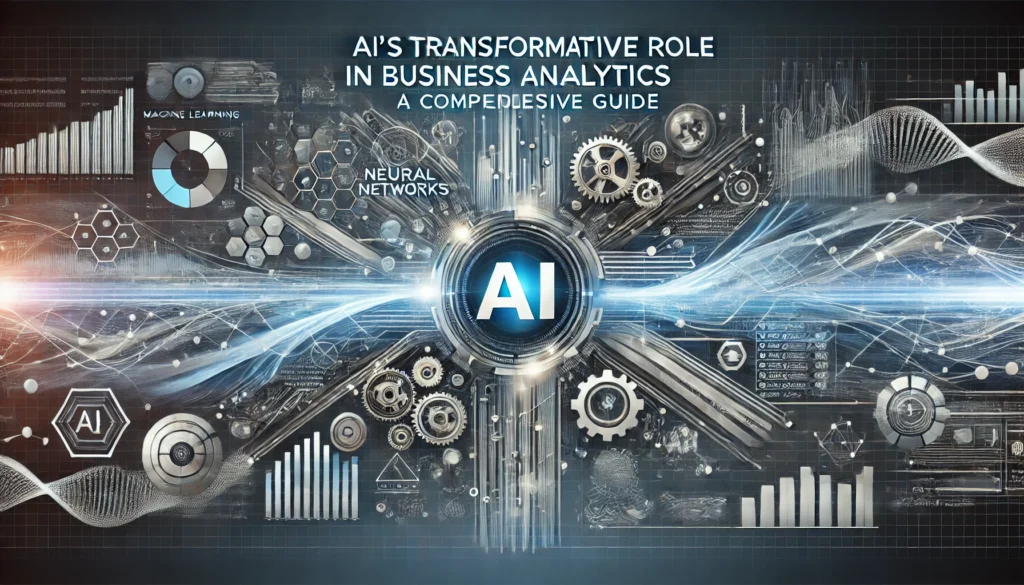AI’s Transformative Role in Business Analytics: A Comprehensive Guide
Introduction
AI has become a pivotal force in reshaping the landscape of business analytics. This innovative technology is driven by advanced systems and algorithms that mimic the decision-making processes of the human brain.
Business analytics, which involves analyzing data to extract valuable insights for informed decision-making, has been greatly enhanced by the capabilities of AI. Today, organizations leverage AI to analyze vast amounts of data with unparalleled speed and precision.
The integration of AI in business analytics has revolutionized data processing, making it more efficient and insightful than ever. By utilizing machine learning algorithms and deep learning techniques, businesses can now extract valuable patterns and trends from their data, which previously seemed unattainable.
These insights empower organizations to refine their strategies, adjust to market shifts, and make data-driven decisions.
In this article, we will explore the multifaceted role of AI in business analytics, covering areas such as data collection, predictive analytics, real-time decision-making, customer insights, and more.
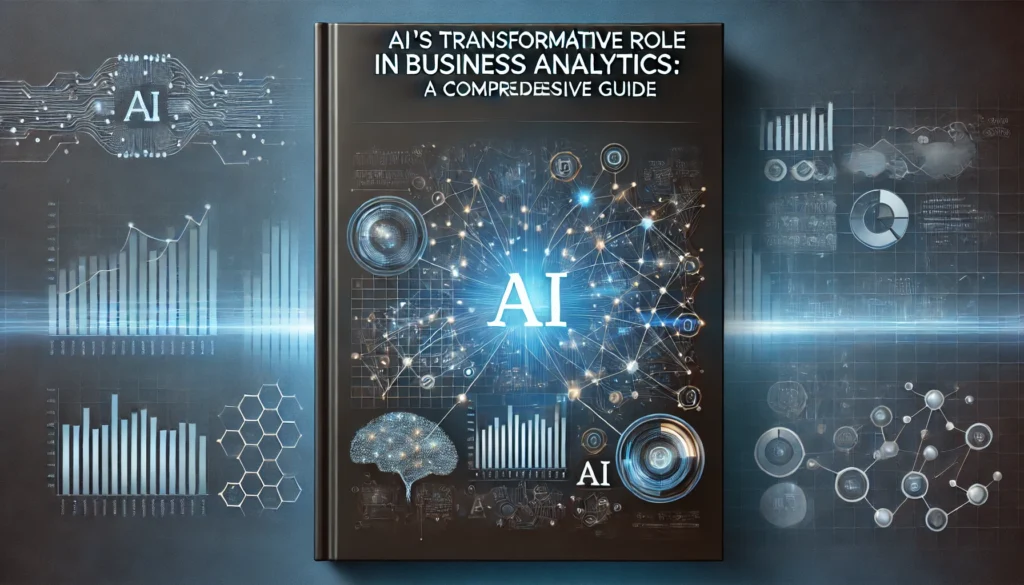
Role of AI in Data Collection and Management
Data collection and management are integral components of business analytics, and AI has significantly transformed these processes. In the past, businesses relied heavily on manual data collection methods, which were not only time-consuming but also prone to human error.
Today, AI-powered tools automate these tasks, enabling real-time data collection and processing with unmatched efficiency.
AI technologies, such as machine learning and natural language processing, allow businesses to collect data from a wide range of sources—including websites, customer interactions, and social media platforms—in real-time.
For instance, AI-driven chatbots can engage with customers, gather data about their preferences and behaviors, and store this information for analysis. Additionally, automated data entry systems powered by AI eliminate the need for manual input, reducing the risk of errors and enhancing data accuracy.
AI also simplifies data management by streamlining complex tasks like data integration and cleansing. These tasks, which were once tedious and time-intensive, can now be performed more effectively with AI.
By automating the process of merging, organizing, and cleaning datasets, AI ensures that the data is well-prepared for analysis. This allows businesses to focus on extracting actionable insights rather than getting bogged down by data preparation.
Predictive Analytics and AI
Predictive analytics is a critical tool in business decision-making, allowing companies to anticipate future trends and outcomes based on historical data.
AI has brought unprecedented advancements in this area. Machine learning algorithms, in particular, have revolutionized predictive analytics by enabling businesses to analyze past data patterns and generate accurate forecasts.
By leveraging AI for predictive analytics, companies can predict customer behaviors, market trends, and business outcomes with greater accuracy. For example, in the retail industry, businesses use AI to analyze customer purchasing patterns and predict future buying behaviors.
This enables them to optimize inventory management, ensuring that they have the right products available at the right time. Similarly, AI helps companies forecast sales trends, allowing for more effective planning of marketing campaigns and resource allocation.
AI’s predictive capabilities also extend to identifying risks and opportunities. Businesses can use AI algorithms to predict potential risks, such as supply chain disruptions or market downturns, and take proactive measures to mitigate them.
Moreover, AI can uncover new opportunities for growth by analyzing trends and patterns that may not be immediately apparent through traditional analytics methods.
AI and Real-Time Decision-Making
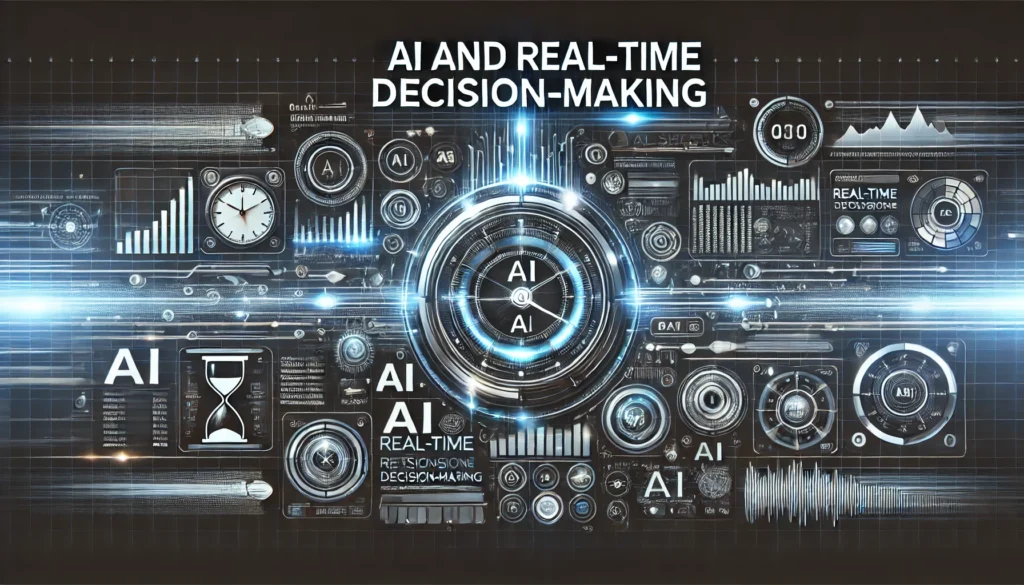
In today’s fast-paced business environment, the ability to make real-time decisions is crucial. AI has emerged as a game-changer in this area, providing businesses with the tools they need to analyze data and make informed decisions instantaneously.
AI-powered systems can process vast amounts of data in real time, delivering insights that enable businesses to react quickly to changing circumstances.
For example, in supply chain management, AI can analyze real-time data from various sources—such as inventory levels, demand forecasts, and transportation routes—and optimize supply chain operations accordingly. This helps businesses reduce costs, minimize delays, and improve overall efficiency. Similarly, AI-powered analytics tools can monitor website traffic and customer behavior in real-time, allowing businesses to adjust their marketing strategies on the fly.
The benefits of AI in real-time decision-making extend beyond operational efficiency. With AI, businesses can identify emerging trends and capitalize on them before their competitors.
Real-time analytics also enable businesses to monitor their performance and make continuous improvements, ensuring they remain agile and responsive in a dynamic market environment.
Customer Insights and AI
Understanding customer behavior is key to any business’s success. AI has made it easier for businesses to gain deep insights into their customers’ preferences, behaviors, and buying patterns.
By analyzing large volumes of customer data, AI-powered tools can uncover trends that might have gone unnoticed with traditional analytics methods.
For example, AI can analyze customer interactions across multiple channels—such as social media, email, and website visits—to provide a holistic view of customer preferences.
This allows businesses to personalize their marketing efforts, tailoring messages and offers to individual customers based on their unique preferences. Personalization is a powerful tool for improving customer engagement and satisfaction, which ultimately drives sales and revenue growth.
Moreover, AI can help businesses identify customer segments with specific needs or behaviors, enabling them to develop targeted marketing campaigns. These insights can also inform product development, ensuring that businesses create products that align with customer demand. By leveraging AI to gain customer insights, businesses can build stronger relationships with their customers and increase loyalty.
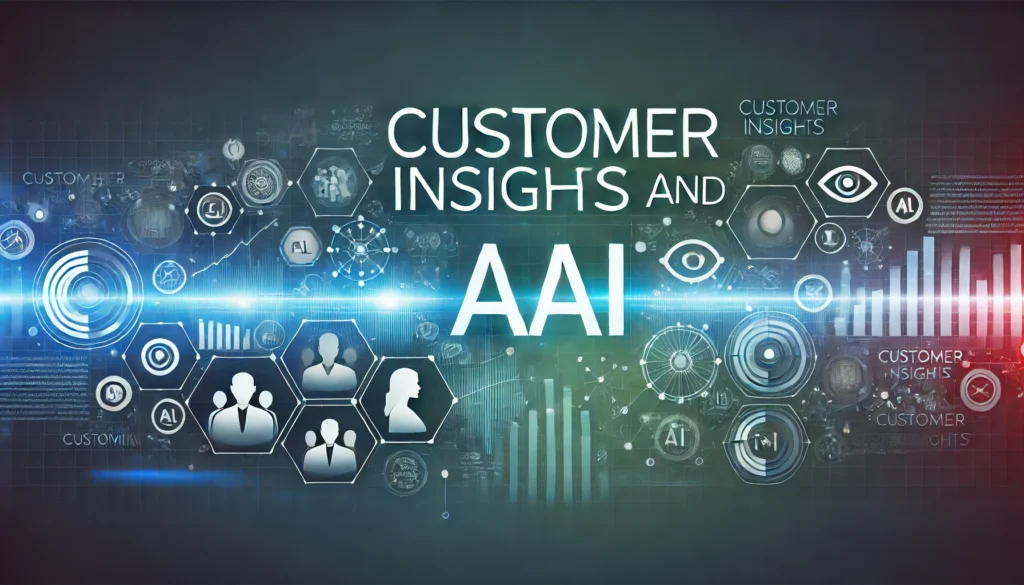
Risk Management and AI
Effective risk management is essential for ensuring a business’s long-term success. AI has transformed risk management by enabling businesses to identify and mitigate potential risks with greater accuracy and efficiency.
Machine learning models can analyze historical data to predict future risks, allowing businesses to take proactive measures to address them.For instance, financial institutions use AI to detect and prevent fraudulent transactions.
By analyzing patterns of behavior, AI can identify suspicious activities and flag them for further investigation. This reduces the risk of financial losses due to fraud and enhances the overall security of transactions. In addition to fraud detection, AI can be used to assess credit risk, identify operational risks, and predict market volatility.
AI can also automate risk assessment processes, improving both speed and accuracy. By reducing the reliance on manual risk assessments, businesses can minimize human error and ensure that their risk management strategies are based on reliable data.
Advanced AI-driven risk management tools provide businesses with the insights they need to navigate uncertainty and maintain financial stability.
AI and Business Performance Monitoring
Continuous performance monitoring is crucial for businesses that want to stay competitive. AI-powered analytics tools allow businesses to track key performance metrics in real-time, providing a comprehensive view of their operations. These tools analyze data from various sources to identify performance trends and offer actionable insights for improvement.
For example, AI can monitor sales performance, customer satisfaction, and operational efficiency by analyzing real-time data. By tracking these metrics, businesses can identify areas where they are excelling and areas that need improvement. AI-powered performance monitoring tools provide businesses with the ability to make data-driven decisions that enhance efficiency and drive growth.
AI’s role in performance monitoring also extends to predictive performance analytics. By analyzing historical performance data, AI can predict future outcomes and suggest strategies for improving performance. This proactive approach enables businesses to make continuous improvements and maintain a competitive edge in their industry.
Competitive Advantage and AI
In today’s highly competitive business environment, staying ahead of the competition is more important than ever. AI has become a critical tool for businesses looking to gain a competitive advantage.
By leveraging AI for competitive intelligence, businesses can gather valuable insights into their competitors’ strategies, market positioning, and customer base.AI-driven analytics tools can analyze competitor pricing, product offerings, marketing campaigns, and customer feedback to help businesses understand their competitive landscape.
Armed with this information, businesses can adjust their own strategies to outperform their competitors. For instance, businesses can optimize their pricing models, enhance product features, or refine their marketing messages based on insights gained from AI-driven competitive analysis.
Furthermore, AI allows businesses to innovate faster and more effectively. By automating routine tasks and processes, AI frees up resources that can be used for strategic initiatives. Businesses that embrace AI are better equipped to adapt to changing market conditions, capitalize on emerging trends, and deliver superior value to their customers.
Challenges in AI Implementation
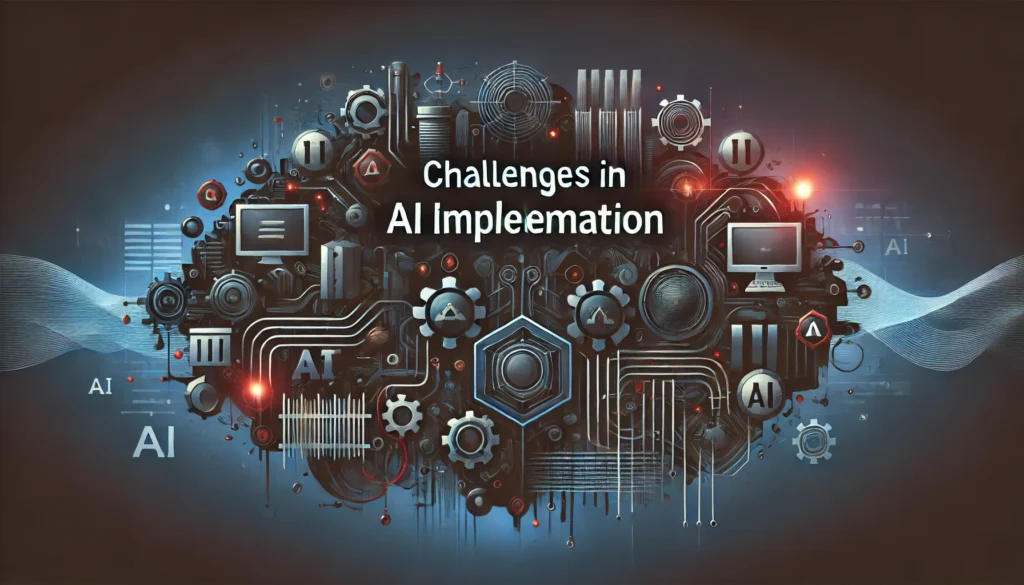
Despite the many benefits of AI in business analytics, implementing AI systems comes with its own set of challenges. One of the primary challenges is data privacy and security. AI-driven analytics systems often handle large amounts of sensitive data, such as customer information and financial records. This raises concerns about data breaches and privacy violations, which can have serious consequences for businesses.
Another challenge is ensuring the accuracy and reliability of AI algorithms. AI systems must be trained on high-quality data to provide accurate results. If the data used to train AI models is incomplete or biased, the resulting insights may be flawed. Businesses must carefully select and prepare their data to ensure that their AI systems are reliable and produce accurate results.
To overcome these challenges, businesses must invest in the right technology infrastructure, develop comprehensive data governance policies, and ensure compliance with relevant regulations. Proper training and education are also essential to ensure that employees understand how to use AI effectively and ethically.
Future Prospects and the Role of AI
The role of AI in business analytics is expected to grow significantly in the coming years. As AI technology continues to advance, it will become even more sophisticated and capable of handling complex analytics tasks.
In the future, AI-powered analytics tools will offer enhanced real-time data processing, more advanced predictive analytics, and deeper customer insights. Businesses that embrace AI will be better positioned to optimize their operations, enhance their decision-making processes, and achieve sustainable growth.
The future of business analytics will be shaped by AI’s evolving capabilities, providing businesses with new opportunities for innovation and success.
Conclusion
AI has had a profound impact on business analytics, transforming everything from data collection and predictive analytics to real-time decision-making and risk management.
By leveraging AI’s advanced capabilities, businesses can optimize their strategies, improve their operational efficiency, and gain a competitive edge in the market. As AI continues to evolve, its role in business analytics will only become more critical, offering new opportunities for growth and success.
